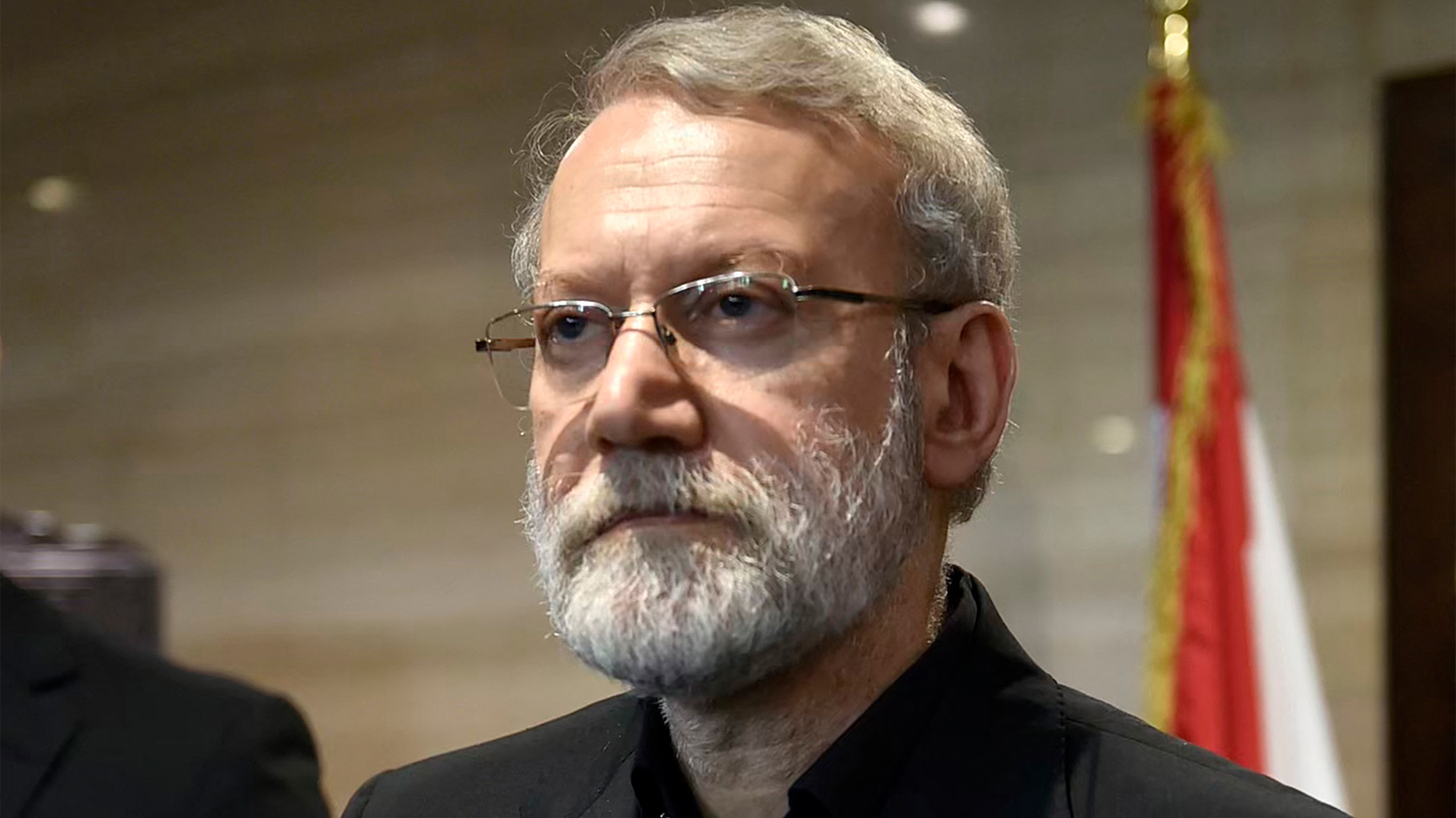Larijani Warns Israel of 'Strong Response,' Details Regional Strategy
Iran's top security official Ali Larijani warns Israel of a "strong response" to any attack, details a new security pact with Iraq, and outlines Iran's advisory role with regional resistance groups in an interview with Al Mayadeen, reported by IRIB.

ERBIL (Kurdistan24) – Iran’s top security official, Ali Larijani, has issued a stark warning that Tehran is prepared for a "strong response to any attack by the Zionist regime," asserting that Israel will not permit the region to achieve stability. In a wide-ranging interview with the Al Mayadeen network, the Secretary of Iran's Supreme National Security Council detailed Tehran's diplomatic engagements with Iraq and Lebanon, outlined its philosophy on regional "resistance" groups, and contrasted its vision for regional security with that of the United States.
According to the IRIB News Agency, which reported on the interview, Larijani discussed his recent visits to Baghdad and Beirut, where he said Iran holds "brotherly, friendly, strong, and strategic" relationships.
In Baghdad, he noted the signing of a security agreement focused on achieving "security, stability, and calm in the two countries."
The visit to Lebanon, he explained, was necessary for consultations and to provide explanations in light of recent events and Iran's strong relations with the country. He described his meetings in Beirut as "good," reaffirming that Lebanon is a "brotherly country for us, which we have stood by in all conditions."
Larijani dedicated a significant portion of his comments to the concept of "resistance," which he described as a "great asset for the countries of the region."
He emphasized that Iran does not interfere in the decisions of these groups, stating they possess the "necessary political maturity to make appropriate decisions based on the circumstances."
He clarified Iran's role as providing "help and advice when requested," not direct commands. To underscore this point, he presented the resistance as a non-sectarian force.
"We defend Hamas, which is a 'Sunni' resistance, and Hezbollah, which is a 'Shia' resistance; meaning our position is not sectarian," Larijani stated, adding that both groups have "reached sufficient maturity" to make their own decisions.
The security chief drew a sharp contrast between Iran's approach to regional security and that of the United States under President Trump.
He said American anger stems from a view of "peace through power," whereas Iran believes security must be established "through the independence of countries, their power, and respect for their sovereignty, not by one country surrendering to another."
He argued that negotiations with the U.S. are only useful when it is understood that war is futile. "As long as America's theory is to create peace through power, they will not get any results and will not succeed," Larijani said, adding that "Iran has never surrendered and will not."
Addressing Iran's broader regional relations, Larijani confirmed that he did not visit Syria on his recent trip because "currently there are no relations between us." However, he left the door open for future engagement, stating that the "possibility of normalizing relations with Syria exists" but depends on the actions of the current Syrian government.
He also described relations with Egypt as "good" and noted a "good start" with Saudi Arabia, acknowledging that while they may not agree on all matters, the relationship can be deepened.
Larijani also commented on a recent conflict, claiming that Israeli Prime Minister Netanyahu failed both strategically and tactically by starting a war and then calling for its halt after failing to rally support from Islamic countries against Iran.
He credited Iran's Supreme Leader, Ayatollah Khamenei, with upsetting the "balance in the US-Israel war" by quickly replacing assassinated commanders and responding with power when faced with calls for surrender.
Larijani said Ayatollah Khamenei "acted like a commander of the armed forces in the operations room," providing advice and guidance. On a personal note, Larijani told Al Mayadeen that on the first day of the war, he was "threatened with death by phone and through Mossad," to which he said he gave a "fitting response."